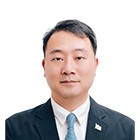Video
Publications
Issue Briefs
Publications | Issue Briefs
Prospects for the U.S. National Security Policies in Trump’s Second Term and the Realignment of
the ROK-U.S. Alliance
Yang Uk
4,3212025.02.05
With Donald Trump’s victory in the U.S. presidential election, America First is expected to resurface, signaling a second seismic shift in the international security landscape. Trump, who views alliances from a transactional perspective, has made it clear that the United States will no longer bear the sacrifices of being the world’s sole policeman. His administration is likely to prioritize clear national interests over the abstract goal of restoring U.S. leadership. By operating under the framework of power politics among great powers and striving for “fair” alliances, Trump aims to maintain the United States’ leading position in the international community while pursuing economic prosperity.
On the Korean Peninsula, Trump’s security policy may retain its fundamental stance, but it differs significantly in implementation. While the Korean Peninsula remains subordinate to China policy, the conditions have shifted due to South Korea’s expanded international role, North Korea’s strengthened nuclear capabilities, and the Ukraine war. Above all, the South Korean government now pursues a Korea-led response in negotiations and strategies with North Korea, contrasting with the situation during Trump’s first term. If the United States unilaterally advances its inter-Korea policy, it could lead to conflicts with its ally, South Korea.
This article is an English Summary of Asan Issue Brief (2024-37).
(‘트럼프 집권 2기의 안보정책 전망과 한미동맹의 재조정’)

Yang Uk
Research Fellow, Director
As an expert in military strategy and weapons systems, Dr. Yang Uk has been active in the defense industry and private military enterprises for over 20 years, and founded and operated IntelEdge Inc., one of the first private military companies in Korea. Since leaving the company, he has commented on various military issues and international conflicts through broadcasting and news media, and has written various writings on weapon systems and military history. He obtained a doctorate in military strategy from Korea National Defense University (KNDU), and has analyzed North Korea's military strategy and WMD programs as a senior research fellow and the director of the WMD Center at the Korea Defense Security Forum (KODEF). He has been an active member of the policy advisory committee of Army, Air Force, Navy, Marine Corps, Joint Chief of Staff, Ministry of National Defense, and Office of National Security. Currently, he continues his research and advisory activities to each military service and government agency, teaching military revolution and modern conflicts at Korea Military Academy and Graduate School of National Defense Strategy of Hannam University.
view more


